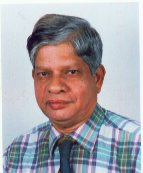Wednesday, March 23, 2011
New technique enables much faster production of inexpensive solar cells
New technique enables much faster production of inexpensive solar cells: "ScienceDaily (Mar. 17, 2011) — TU Delft has demonstrated that the speed at which inexpensive solar cells are produced can be increased by a factor of ten -- and that this can be achieved without any detriment to the energy yield of the cells. This will almost certainly result in a further reduction in the price of the cells, which are made of amorphous silicon. On March 14, Michael Wank defended his thesis on this subject at TU Delft."
Tuesday, February 22, 2011
India's Renewable Future: Challenges and Prospects | Renewable Energy News Article
India's Renewable Future: Challenges and Prospects | Renewable Energy News Article
Dr. Farooq Abdullah, India's Minister of New and Renewable Energy, wants his country to transform the promise of boundless and clean energy into reality.He said that "Although we have seen an impressive increase in installed capacity addition, from barely about 1,350 MW at the time of independence (1947) to about 160,000 MW today, over 90,000 MW of new generation capacity is required in the next seven years. A corresponding investment is required in transmission and distribution. The challenge facing a developing nation such as ours is to meet our increasing energy needs while minimizing the damage to the environment.This is why, while striving to bridge our energy deficit, we want to increase the share of clean, sustainable, new and renewable energy sources. Whether or not renewable energy completely replaces fossil fuel, we are determined to develop renewable energy to its fullest potential."
Dr. Farooq Abdullah, India's Minister of New and Renewable Energy, wants his country to transform the promise of boundless and clean energy into reality.He said that "Although we have seen an impressive increase in installed capacity addition, from barely about 1,350 MW at the time of independence (1947) to about 160,000 MW today, over 90,000 MW of new generation capacity is required in the next seven years. A corresponding investment is required in transmission and distribution. The challenge facing a developing nation such as ours is to meet our increasing energy needs while minimizing the damage to the environment.This is why, while striving to bridge our energy deficit, we want to increase the share of clean, sustainable, new and renewable energy sources. Whether or not renewable energy completely replaces fossil fuel, we are determined to develop renewable energy to its fullest potential."
Thursday, January 20, 2011
New solar cell self-repairs like natural plant systems
New solar cell self-repairs like natural plant systems: "Researchers are creating a new type of solar cell designed to self-repair like natural photosynthetic systems in plants by using carbon nanotubes and DNA, an approach aimed at increasing service life and reducing cost. 'We've created artificial photosystems using optical nanomaterials to harvest solar energy that is converted to electrical power,' said Jong Hyun Choi, an assistant professor of mechanical engineering at Purdue University, West Lafayette, Ind.
- Sent using Google Toolbar"
- Sent using Google Toolbar"
Subscribe to:
Comments (Atom)




